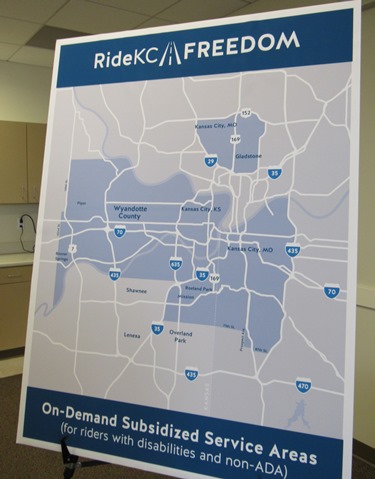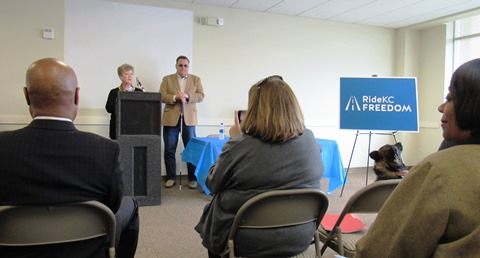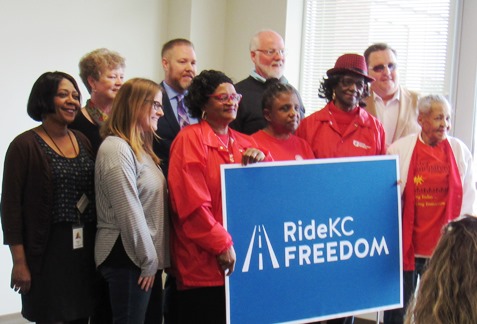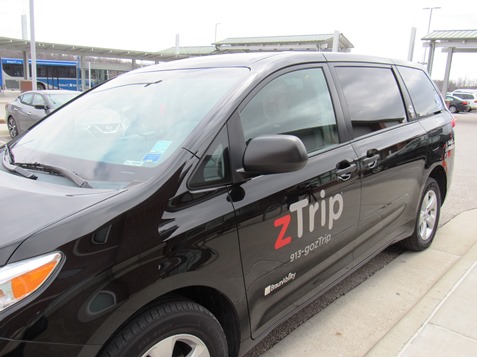
by Mary Rupert
Foster Grandparents today applauded the announcement that RideKC Freedom-on-Demand paratransit services is expanding here.
Several Foster Grandparents were in the audience as Kansas City Area Transportation Authority and Unified Government officials made the announcement at the Indian Springs Transit Center, 47th and State Avenue, Kansas City, Kansas.
About 20 of the program’s Foster Grandparents who need paratransit transportation had been unable to get to their jobs recently in the Kansas City, Kansas, schools. In all, there are about 96 Foster Grandparents in the program.
“This is exciting news,” said Shelia Freeman, Foster Grandparents program coordinator in Kansas City, Kansas. “A month ago we didn’t know what to do to get them to their schools.”
The Foster Grandparents were formerly riding the UG’s paratransit and senior service vehicles, but when there were maintenance problems with the vehicles in January, the Foster Grandparents lost their rides to school. Several Foster Grandparents had appeared at a UG meeting Jan. 29 to talk about the cancellation of paratransit trips.
Officials today described this as a step forward for those who need paratransit services.
“This is about finally leveling the playing field,” said Robbie Makinen, president and CEO of the Kansas City Area Transportation Authority, at today’s announcement. “We have taken down the barriers.”
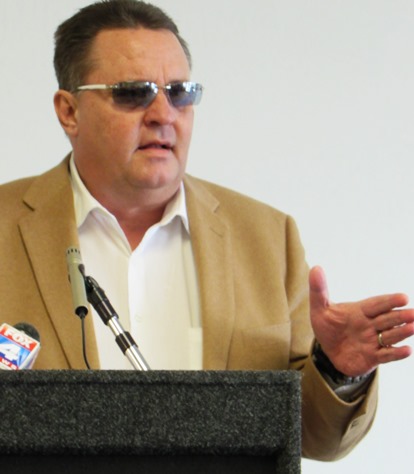
The service eliminates the barriers of time and space, and also allows people to cross county lines and state lines, he said.
No longer do people have to schedule a ride 24 hours in advance, but now they can just contact it on demand, much in the same way as they may call or text for an Uber ride. He said persons may download a RideKC Freedom app, and can get a ride. If persons don’t have a smart phone, they can make a phone call. The service can be used to go on shopping trips, to doctor’s appointments and other trips. There is a charge for each ride.
“You may not use public transit but you can be sure you depend on those who do,” Makinen said. “It’s a big deal.”
He said the program started last May in Kansas City, Missouri, and during the past month it provided about 7,700 rides through the paratransit service. It has made almost 60,000 trips to date.
Usually a large part of the transit service budget goes toward paratransit service, Makinen said. With the ATA it is 16 to 18 percent. He said they were able to bring the cost down while offering a premium service.
The ATA’s partnership with the UG has been huge, he said, including this paratransit service and also job access services to reach jobs.
Makinen credited UG Commissioner Melissa Bynum and Mayor David Alvey for working together with ATA officials on this effort.
Mayor Alvey said this is proof that the KCATA is fulfilling its mission to connect people to opportunities.
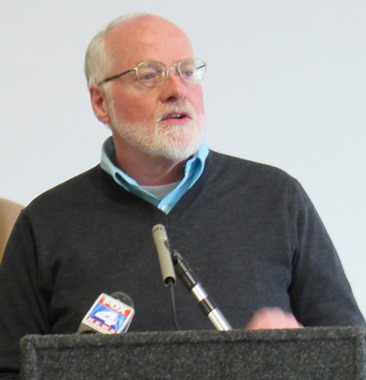
“If we need any evidence at all, this is proof positive that the passion of this organization is played out today, because we’re identifying those who have the greatest need for public transit, and we’re providing them the service as they need it,” Mayor Alvey said. “Not as we think they need to access it, not as we think we can afford, but they have found an affordable way to solve the problems of the people who most needed it. This is really what government should be about, understanding the needs of individuals, how they live, their experience, and finding ways to meet that.”
Commissioner Bynum, who also serves on the KCATA board, gave credit to Justus Welker, UG transit director, for working with the KCATA to solve this problem. Bynum was instrumental in advocating for the Foster Grandparents who needed the paratransit services.
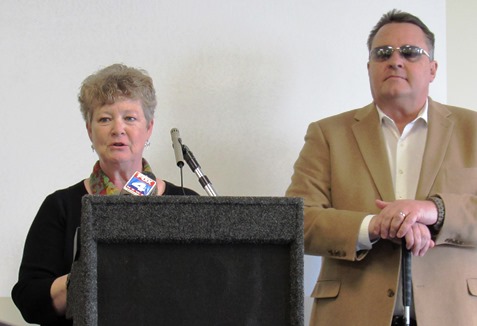
To see an earlier story about paratransit services, visit https://wyandotteonline.com/senior-citizens-discuss-challenges-with-ug-paratransit-services/.
